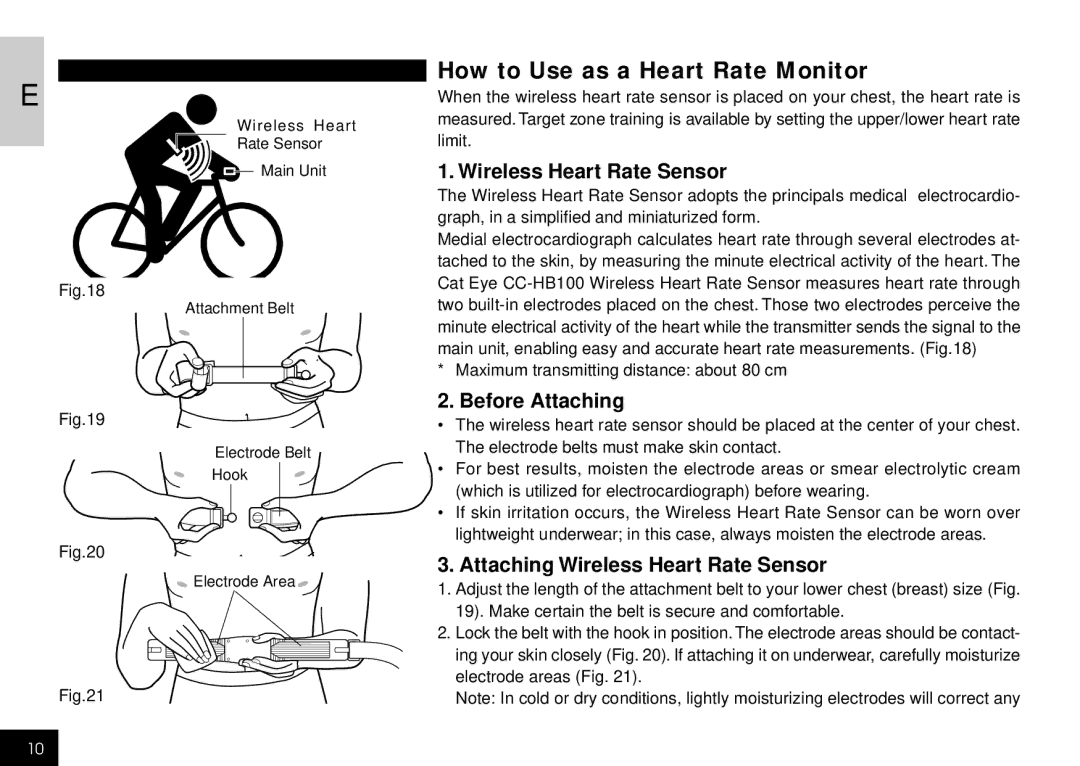
E |
| How to Use as a Heart Rate Monitor |
| When the wireless heart rate sensor is placed on your chest, the heart rate is | |
| Wireless Heart | measured. Target zone training is available by setting the upper/lower heart rate |
| limit. | |
| Rate Sensor | |
|
Main Unit
Fig.18
Attachment Belt
1. Wireless Heart Rate Sensor
The Wireless Heart Rate Sensor adopts the principals medical electrocardio- graph, in a simplified and miniaturized form.
Medial electrocardiograph calculates heart rate through several electrodes at- tached to the skin, by measuring the minute electrical activity of the heart. The Cat Eye
* Maximum transmitting distance: about 80 cm
Fig.19
Electrode Belt
Hook
Fig.20
2. Before Attaching
•The wireless heart rate sensor should be placed at the center of your chest. The electrode belts must make skin contact.
•For best results, moisten the electrode areas or smear electrolytic cream (which is utilized for electrocardiograph) before wearing.
•If skin irritation occurs, the Wireless Heart Rate Sensor can be worn over lightweight underwear; in this case, always moisten the electrode areas.
3. Attaching Wireless Heart Rate Sensor
Electrode Area | 1. | Adjust the length of the attachment belt to your lower chest (breast) size (Fig. |
| ||
|
| 19). Make certain the belt is secure and comfortable. |
| 2. | Lock the belt with the hook in position. The electrode areas should be contact- |
|
| ing your skin closely (Fig. 20). If attaching it on underwear, carefully moisturize |
|
| electrode areas (Fig. 21). |
Fig.21 |
| Note: In cold or dry conditions, lightly moisturizing electrodes will correct any |
10
